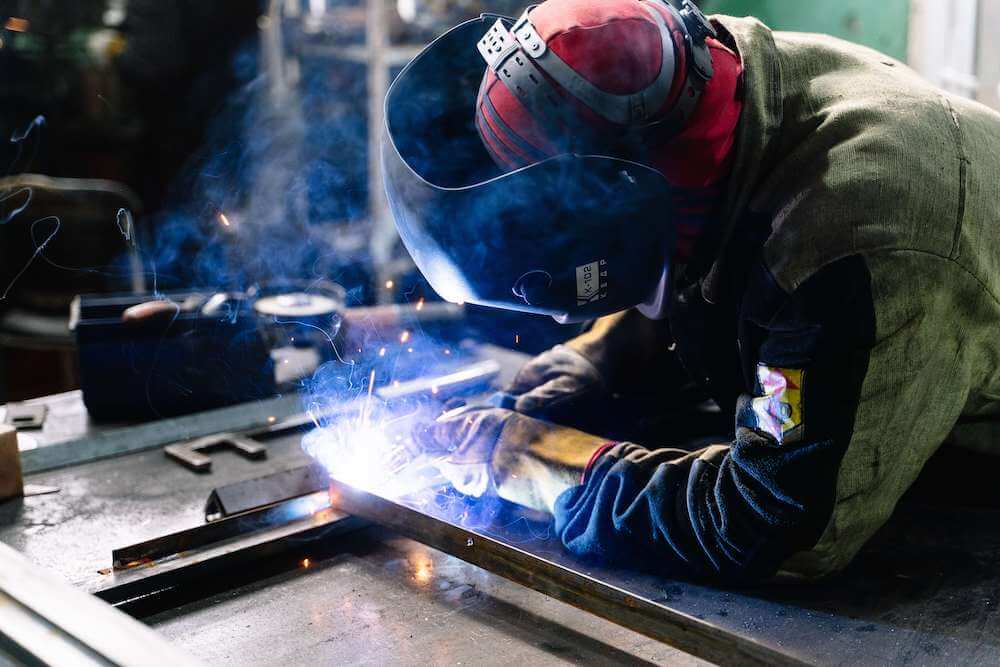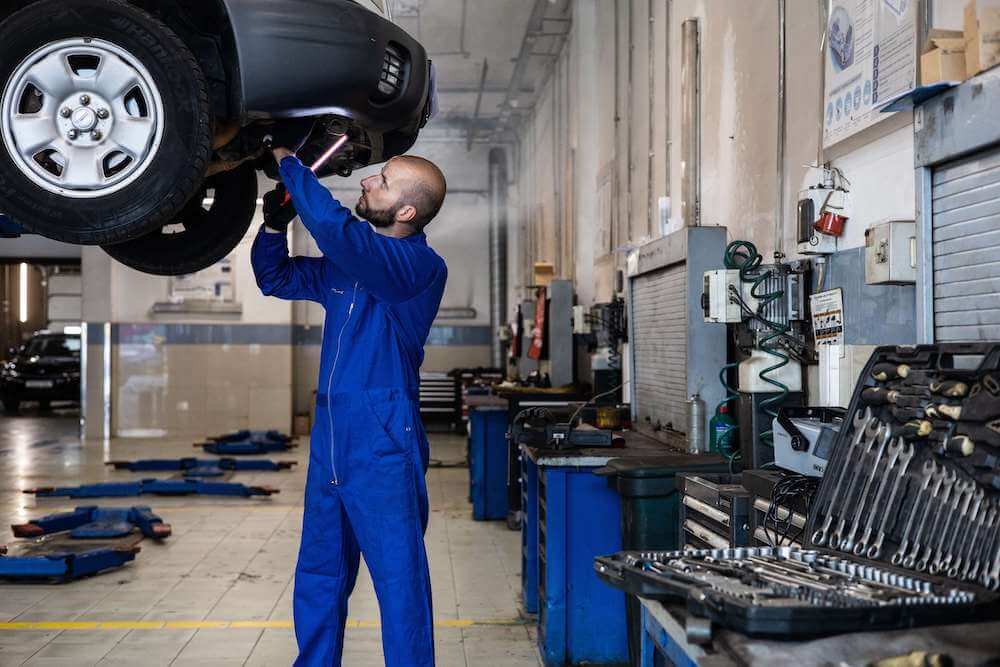Berks Career & Technology Center-East Campus

Classes from BCTC-EC
Heavy Equipment Operations

The Heavy Equipment Operations Program is designed to provide students with the theory and hands-on skills relevant to the fundamentals of operation and preventive maintenance of various types of heavy equipment. Specialized classroom and lab experiences are designed to provide instruction in operation and preventive maintenance of mobile machinery used by heavy equipment operators.
Included in the course of study is an introduction to the diverse job opportunities available to heavy equipment operators. Instruction begins with job site safety, equipment rigging, and other fundamentals before advancing to activities like building a pad and backfilling a trench.
Students will be instructed in the proper use of equipment, basic maintenance of the machines, and will receive field practice in earth moving, site-preparation, construction site layout, excavation, and backfilling of building sites. In addition, students will learn to use a laser level, hand levels, power tamping equipment, how to read blueprints, and become familiar with OSHA rules. Exercises on virtual equipment simulators are followed by practice with the real thing on an outdoor training course. Students gain real-world experience by applying the knowledge learned at an off-campus quarry site, under the supervision of an instructor.
Heavy Equipment Operators are employed in a variety of occupations in the construction industry, road construction, and mining.
Recreational & Power Equipment Technology

The Recreational & Power Equipment Technology Program course has earned national technician certification from the Equipment and Engine Training Council (EETC). BCTC is one of only a few technical facilities in Pennsylvania to achieve this standard making it a premier training program for students in Berks County.
The program is designed to teach skills in the service, sales, operation and repair of lawn and garden equipment, chain saws, outboard motors, portable generators, pumps, farm equipment, motorcycles, industrial equipment and snowmobiles. Students perform “live work” for customers, which gives them invaluable experience in estimating, parts ordering, repair, and customer service. Students study measuring tools, ordering and record keeping, small engine design and components, fuel systems, lubrication systems, starting/electrical systems, troubleshooting, overhaul, drivelines, and welding. In addition, repair and service of lawn and garden equipment, chain saws, snowmobiles and motorcycles is taught.
By completing the course, the students are prepared to obtain EETC certification in 2- and 4- cycle gas engines, hydraulic systems, electrical systems, transmissions and drives. Students are qualified to pursue careers as farm equipment, motorcycle, motorboat mechanics, or small engine mechanics.
Heavy Equipment Technology

The Heavy Equipment Technology Program is designed to provide students with the theory and hands-on skills relevant to repair fundamentals and maintenance of various types of heavy equipment found on construction sites. Specialized classroom and lab experiences are designed to provide instruction in systems and components of heavy equipment. Students begin with safety, tools/fasteners and preventive maintenance basics. Students also learn to inspect, repair and replace components of the suspension, steering, brake, engine, cooling, fuel, electrical/electronic, air intake and exhaust, clutches, transmissions, air conditioning systems, hydraulics/ hydrostatics as well as drive lines/rear axles/final drives, and drive motors. Welding processes and safety techniques are also taught. Students will be taught computer diagnostic skills as a tool to troubleshoot electronic problems. Students may achieve certification in air conditioning and/or electronic control for newer equipment. In their final year, students also learn the safe basic operation of trucks, tractors, skid steers, backhoes, dozers and excavators. Graduates of this program are well prepared and find exciting careers as diesel engine specialists, heavy equipment mechanics and apprentice technicians.
Cosmetology

This program is designed in compliance with the rules, regulations and state-mandated curriculum of the Pennsylvania State Board of Cosmetology. Cosmetologists practice the art and science of improving beauty through the care and treatment of skin, hair, and nails. Graduates of this program are well-prepared cosmetologists with excellent employment prospects.
The curriculum provides hands-on training in bacteriology/ sterilization, manicuring, artificial nails, draping of clients, shampoo, scalp treatment, hairstyling, haircolor, permanent wave/chemical relaxers, haircutting, facials/make-up, mock state boards, wigs, receptionist duties, salon management, electricity, anatomy/physiology and ethnic hair care. If students finish the required 1,250 hours of the core program, students may elect to receive training to become a cosmetology instructor and participate in a student teaching program.
BCTC students, under the supervision of licensed instructors, hold cosmetology clinics that are open to the public. The clinics provide students with real world experience by performing basic salon services for customers such as haircutting, styling, permanent waves, various color services, manicuring, and facials. The clinics provide students with invaluable experience that helps further prepare them for the workplace.
The Cosmetology program is regulated and licensed through the Pennsylvania State Board of Cosmetology. To complete the approved curriculum, students must document 1,250 hours of instruction in the program.
Instruction of 1,250 hours qualifies the student for the Pennsylvania State Board of Cosmetology licensing examination. Upon successful completion of the examination, the student then becomes a licensed cosmetologist or nail technician in the Commonwealth of Pennsylvania and is qualified for employment in a full service salon or advanced licensing in teaching.
Commercial Driver's License Training

Commercial Driver’s License Training (CDL) at BCTC offers a professional tractor-trailer driver training program that prepares students seeking careers in the motor carrier field to obtain their Commercial Driver’s License. The program is designed to provide professional tractor trailer driver training to students with or without prior truck driving experience. CDL Training includes: • Driver skill development • Applied safety regulations & procedures • Basic equipment maintenance • Proper loading techniques • Intra- & inter-state regulations. The comprehensive 160-hour Class A program includes classroom theory, independent study, and driving instruction. Students can choose one-on-one driving instruction or shared driving instruction with another student. BCTC offers Day and Evening classes. A 136-hour Class B training is also available. BCTC offers Class A training in either manual or automatic tractors.
Automotive Collision Repair Technology

This program utilizes the industry standard I-CAR enhanced technical curriculum. Generally, students learn to reconstruct damaged automotive vehicles and light trucks. Students learn to examine damaged vehicles and estimate cost of repairs; remove, repair and replace body panels, accessories, grills, trim and automotive glass, and straighten unibody and conventional structures using state-of-the-art equipment and precision measuring systems. Refinishing processes and spray-painting techniques are taught in a controlled atmosphere downdraft spray booth according to industry standards. Students learn the proper use of power and hand tools, welding processes and techniques, and safety. Students are prepared to enter the auto body and collision industry as entry level technicians. Management, service and business ownership are career paths that many graduates successfully pursue. The program was awarded a grant from the National Collectors Foundation to introduce students to careers in antique car restoration and customization.
Electrical

This program includes basic math, tools used in the trade, basic rigging, basic and advanced electrical theory, blueprint reading, fasteners and conduits, AC&DC theory, grounding, circuit breakers and fuses, residential, commercial and industrial wiring, electrical motor controls, load and motor calculations, fire alarm systems and HVAC controls. Students will also study the National Electric Code and related materials in preparation for successful completion of the City of Reading License Exam.
Plumbing & Heating

Students in the Plumbing and Heating program will learn how to assemble, install, alter, and repair pipes and pipe systems. These systems are vital for all buildings to carry water, steam, air, or other liquids and gasses for sanitation, industrial and other uses. Students also learn to install plumbing fixtures, appliances, and heating systems. Safe and proper mechanical practices are essential components as they help to protect the health and wellbeing of the nation.
The hands-on approach to training will cover layout, assembly, installation and repair of pipes, fittings, and fixtures of heating, water and drainage systems according to manuals, specifications and plumbing codes. Also included are the installation, repairing, operating and testing of various types of residential and commercial heating equipment and the controls necessary for their operation.
Real world experience is gained at BCTC’s student-built house as students install and connect the plumbing, piping, heating, and fixtures required in today’s homes.
Graduates of this program are prepared for entry level work and can also pursue an apprenticeship program.
Welding Technology

Students in the Comprehensive Welding program learn the welding standards established by the American Welding Society (AWS). Welding at BCTC is also an AWS SENSE (School Excelling through National Skill Standards Education) program. Students will learn electric arc welding, shielded metal arc welding, gas metal arc welding and gas tungsten arc welding, as well as oxyacetylene cutting/welding. Students will also have hands on experience using pulse welding technology and a CNC controlled plasma table.
HVAC / Refrigeration

Students in the HVAC/Refrigeration program learn the theory and application of the principles involved in the conditioning of air, cooling, heating, filtering and controlling humidity. Students develop skills in assembling and installing tubes and pipes, motors, compressors, control devices, valve and thermostats, and gain an understanding of blueprints and schematics related to equipment and systems. Students will be able to diagnose equipment malfunctions and read and understand technical reference manuals. Energy management control technology is taught as it relates to domestic, commercial and industrial air systems, heat pumps forced air conditioning systems and microcomputer systems control. Graduates of this program have opportunities for entry level employment and can also pursue an apprenticeship program.
Industrial Maintenance Technician Program

This course is designed for those in business and industry responsible for equipment and industrial maintenance. The program includes blueprints and schematics, hydraulics and pneumatics, electronics basics, mechanical systems, electrical motors and controls, VFD’s, PLC programing and robotics. Theory lessons will be reinforced through hands-on experience in a laboratory setting. Students have the option to enroll in the two-year program or complete one module at a time. Modules include: Electronic Basics. Mechanical Basics, Motor Controls & VFD’s and PLC Programming & Robotics.
Cabinetry & Wood Technology

Cabinetry is a specialized branch of woodworking where students learn to fashion wood into objects of usefulness and beauty, such as home and office furniture and cabinets. Instruction is given in reading blueprints and planning the sequence of cutting operations to use the materials resulting in the least amount of waste. Students develop skills in the use of many hand and power tools. The Cabinetry student will train with the technology for CNC design, programming, and operations. These machinery skills have become commonplace at most manufacturing and mill shops.
Students will receive training in precision cutting, shaping, and assembling of parts through the use of hand tools, power tools, and woodworking machines. Instruction will also be provided in design and layout, assembly, hardware, finishes, and installation.
As a participant in Cabinetry and Wood Technology, students participate in the construction of the student-built house project. Its county-wide reputation for quality makes this an exceptional “live work” opportunity that will instill confidence and pride as students prepare to enter the workforce and/or enter an apprenticeship program.
Diesel Technology

Diesel engines are found in trucks, trains, buses, construction and agricultural equipment and many other types of transportation vehicles. As the diesel equipment industry continues to expand, the demand for mechanics and technicians to repair and maintain diesel equipment grows.
Using state-of-the-art classroom and lab experiences, the program prepares students to engage in diagnosis, servicing, and maintenance of diesel trucks. Students begin with the fundamentals and learn to identify and properly use tools and fasteners as well as general reconditioning skills. Students learn to inspect, repair and replace components of the suspension, chassis, fifth wheel, steering, brake, engine, cooling, fuel, electrical/electronic, air intake and exhaust, clutches, transmissions, air conditioning systems, as well as drive lines and rear axles. Welding processes and safety techniques are also taught.
Students are taught to use service and technical manuals and are also prepared to obtain Pennsylvania State Inspection certification.
Graduates of this program are well-prepared to enter the workforce as bus and truck mechanics, diesel engine specialists, and heavy truck mechanics. Additional education after high school can lead to many opportunities in service management, training, and advanced diesel principles.
Horticulture

Horticulture students pursue a career interest in any one or combination of the major areas of horticulture: turfgrass establishment and maintenance, landscape design, construction and maintenance; greenhouse crop production; and floral design.
Turfgrass establishment and maintenance is the study of turf-grasses; soil identification and amendments; seasonal lawn maintenance and installation tasks; pest control and the establishment of lawns. This discipline includes the operation of lawn equipment and small engine repair, preventative maintenance. Landscape design, construction and maintenance includes the study and maintenance of landscape design; vegetation; pruning; propagation; the installation of hardscaping, lighting, and water features; garden installation and equipment operation. Greenhouse crop production is the study of crop scheduling and greenhouse crop care and sales. Floral design includes the study of fresh, silk, and dried floral arranging; holiday and special occasion designs and work, houseplant care, operating a small business, and trends in the floral industry.
The Horticulture program features an aquaponics system. Aquaponics blends together the technology of hydroponics and fish rearing methods of aquaculture. Based upon the nitrogen cycle, the fish produce essential nutrients for the plants, and in return, the plants filter the water. This sustainable technology allows for organic growing of crops like lettuce, radishes, tomatoes, and much more. BCTC’s Horticulture program is licensed with the PA Department of Agriculture to breed fish and provide for other educational programs. Students in the program work closely with Culinary students to plan menus and schedule the crops for proper harvest. This cross collaboration helps build networking skills while implementing a 21st century business model.
Students in the program gain invaluable experience by landscaping the grounds of the student built house project, maintaining portions of the campus, creating seasonal floral arrangements for customers, working on community service projects, and engaging in the production and sale of bedding plants each spring. Students should hold interest in working outdoors, indoors, and in all weather conditions; students will get dirty and work in a physically demanding career field.
Trade Prep Certificate Programs

These programs are non-credit, trade-specific, training programs designed to prepare you for a rewarding career in a high demand industry. Each program can be completed in just 9 months by attending class 2 nights per week. Successful completion of this hands-on learning approach will earn you a BCTC Certificate of Competency in one of three different trade areas: Electrical, HVAC/R, Plumbing. You will have the opportunity to enter any one of these programs with little or no knowledge of the selected trade. Successful completion of the program provides you with the knowledge and skills for a basic foundation in the skilled trade area of your choice. Each program will include: OSHA safety training, Related trade theory, Hands-on training. Students who successfully complete the program will be prepared to find employment as helpers in their respective trade, pursue an apprenticeship program (after obtaining employment with a sponsoring company), or may further their education by enrolling in a post secondary school. Trade Prep Certificate programs are the right choice for recent high school graduates, GED recipients, underemployed, unemployed, career changers, military veterans, and for anyone seeking foundational skills for a future in construction or industry.
Dental Occupations

The Dental Occupations program integrates lectures, demonstrations and hands-on experiences to teach students a variety of dental related subjects. The program provides leading edge training for careers as a dental assistant, dental laboratory technician assistant or a circulating assistant.
The curriculum covers an introduction to healthcare, infection control, safety and emergency procedures, ethical/ legal responsibilities, normal body functions and common disorders, patient care and procedures, office procedures, pharmacology, radiology, operative dentistry, dental materials, dental laboratory procedures, oral surgery, periodontics, and prosthodontics.
By completing this program, students are well prepared for their chosen careers. As dental assistants, they assist dentists during examination and treatment of patients. Students learn to prepare patients for treatment, sterilize instruments, prepare materials and make study models from impressions, expose and process x-ray film and provide chairside assistance for the dentist. Dental laboratory technician assistants learn to work in a dental laboratory assisting with the creation of dental prostheses (replacements for natural teeth).
Electrical Occupations

Construction and maintenance electricians ensure conductivity of electrical fixtures and equipment found in today’s homes and businesses. Students in the Electrical Occupations program are provided with the skills to become construction and maintenance electricians. Construction electricians lay out, assemble, install, and test electrical fixtures and wiring used in electrical systems on construction sites. Maintenances electricians maintain and keep many different types of electrical equipment in good working order principally by detecting and repairing defective equipment before a breakdown occurs. The curriculum covers many areas including: residential wiring and service, wiring alternatives, installation of electrical environmental circuits, commercial and industrial wiring, electrical maintenance, planning and site work on commercial/industrial jobs and services, power distribution transformers, single phase transformers and AC machines, PLC’s, electrical aspects of HVAC and related facilities, and emergency power systems. Instruction is also provided in the installation of electrical distribution systems overhead and underground.
Building Construction Occupations

Students in the the Building Construction Occupations program build their skills from the ground up! Executing all aspects of residential and commercial construction from foundation to finish, student experiences involve the basics of several building trades including carpentry, metal fabrication, interior finishes, masonry, plumbing and electricity. As a student in BCO, you will also learn to use various hand and power tools. Graduates of this program are prepared for employment in the construction fields or may pursue more specialized training through an apprenticeship program.
Carpentry

The Carpentry program is accredited by the National Center for Construction Education and Research (NCCER) through the Associated Builders and Contractors (ABC) and provides participants with defined career paths in carpentry. This program prepares students in all phases of residential and light commercial carpentry through a combination of classroom, laboratory, and live work experiences to help the students develop their skills.
The instructional program covers both types of carpentry work: rough and finish. Rough carpentry includes framing, sheathing, wood and steel studding, and flooring. Finish carpentry includes the installation of finished flooring, stairwork, siding, trim, wallboards, windows and hardware.
Students in this program will also learn estimating, material identification, and the basics of both rough and finish carpentry related to residential construction, including such areas as blueprint reading, the use of power and hand tools, framing techniques, roofing, siding and the installation of trim and hardware.
As a participant in this program, students at the East Campus participate in the construction of the student-built house project. Its county-wide reputation for quality makes this an exceptional “live work” opportunity that will help hone skills as students prepare to enter the workforce or apply for an apprenticeship.
In person Commercial Driver's License Class A (CDL-A) Classes

Berks Career & Technology Center-East Campus is renowned for its high-quality vocational programs, and it now offers an exceptional Commercial Driver's License Class A (CDL-A) program for students interested in pursuing a career in driving. This program combines hands-on training and classroom instruction to teach students everything they need to know about professional driving, from operating tractor-trailers to understanding transportation regulations. The campus's CDL-A program boasts experienced instructors who are experts in the industry, ensuring that students receive reliable guidance. The school takes pride in its state-of-the-art facilities and equipment, which provide a realistic simulation of the work environment and ensure that students are fully competent before entering the job market. Upon successful completion of the program, students receive a Commercial Driver's License Class A certification, opening up numerous job opportunities in logistics and transportation. Additionally, Berks Career & Technology Center-East Campus offers assistance with job placement after graduation, giving students an added advantage. Located conveniently in Pennsylvania, this comprehensive CDL-A program is the perfect stepping stone for those looking to succeed in the trucking industry. Berks Career & Technology Center-East Campus is dedicated to shaping career futures through practical learning experiences and is a testament to the importance of education and vocational achievement.
About school
Berks Career & Technology Center-East Campus is a destination for ambitious students seeking to advance their practical and theoretical knowledge. This institution empowers learners with diverse, career-specific programs designed to help them meet their individual goals while also addressing the needs of the larger job market. Esteemed faculty members offer their insights and experience, facilitating a learning environment that encourages intellectual growth and hands-on practical expertise. Through this, students emerge as proficient professionals, ready to step into their chosen career fields. Striving to become more than an educational system, Berks Career & Technology Center-East Campus is committed to instilling a sense of responsibility and a spirit of innovation in its students, thus illustrating the profound impact education can have on individuals and society as a whole. Rooted in a tradition of excellence, this institution exemplifies the possibilities of vocational education and serves as a testament to its undeniable relevance in today's dynamic world.
In the Reading, PA area
3307 Friedensburg Road, Oley, PA 19547